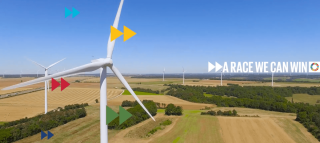UN Climate Action Summit 2019 - what commitments will Ireland make?

Countries who signed the Paris Agreement in 2015 are now being asked to outline what plans they have to stop the increase in emissions by 2020, and dramatically reduce emissions to reach net zero by 2050. Reachinig the 2050 target requires a 45 per cent reduction in greenhouse gas emissions by 2030. Countries are expected to outline national plans to fully transform economies in line with the sustainable development goals. These plans must be fair, and deliver a just transition by creatnig new opportunities and protecting those who will be most negatively impacted by the required policy changes.
The UN Secretary General has called for radical change ino the following areas:
- ending subsidies for fossil fuels and high-emitting agriculture and shifting towards renewable energy, electric vehicles and climate-smart practices.
- carbon pricing that reflects the true cost of emissions, from climate risk to the health hazards of air pollution.
- accelerating the closure of coal plants and halting the construction of new ones and replacing jobs with healthier alternatives so that the transformation is just, inclusive and profitable.
In order to deliver this radical change the UN Secretary General has identified six key strands for action which are energy transition, climate finance and carbon pricing, industry transition, nature-based solutions, cities and local action, resilience and adaptation. Ireland must present ambitious plans and actions in areas such as renewable energy and energy efficiency, promoting biodiversity, reducing harmful emissions across all sectors and ensuring momentum and support for ambitious mitigation and adaptation strategies.
This is an opportunity for Government to implement the brave social, economic and environmental policies required to deliver on our national ambition for a low carbon future and build upon the recently published Climate Action Plan. All sectors will have a role to play in ensuring we meet our targets in 2030 and 2050. If Government is really serious about today’s UN Climate Summit, then Budget 2020 should reflect our climate action ambitions. To this end Social Justice Ireland proposes that in Budget 2020 Government implement the following policies to deliver on our national ambition of net zero carbon emissions by 2050:
- Increase in the rate of carbon tax by €10 per tonne of CO2 emitted, and use the €212m raised to invest in a Just Transition Fund. This fund must support areas such as re-training and support for those communities who will be most impacted by the loss of employment; investment in policies to combat energy poverty and investment in renewable energy schemes and in community energy advisors and community energy programmes at a minimum.
- Increase Excise Duty on Diesel by 6c per litre and decrease by 6c on petrol to raise €102m in 2020. Increase commercial diesel rebate to compensate those most affected in year one (€22m)
- Remove PSO subsidy for peat and direct that money (€118m) towards renewable energy schemes
- Commercial Air Transport Tax, to raise €210m in 2020
- Aggregate Levy €2.50 per tonne to raise €75m in 2020
- Retrofitting programme and Community Energy Advisors: €130m
- 15c levy on single-use coffee cups to raise €96m in 2020
- Invest in a Deposit and Return Scheme for Sealed Beverage Containers: €5m
- Circular Economy Package: €10m
- Investment in National Biodiversity Centre & National Parks and Wildlife: €10m
- Increase the Electric Vehicle Grant by €1000: €5m
- Increase investment in re-charging infrastructure for Electric Vehicles: €10m
Full details of these proposals are available in Budget Choices 2020.